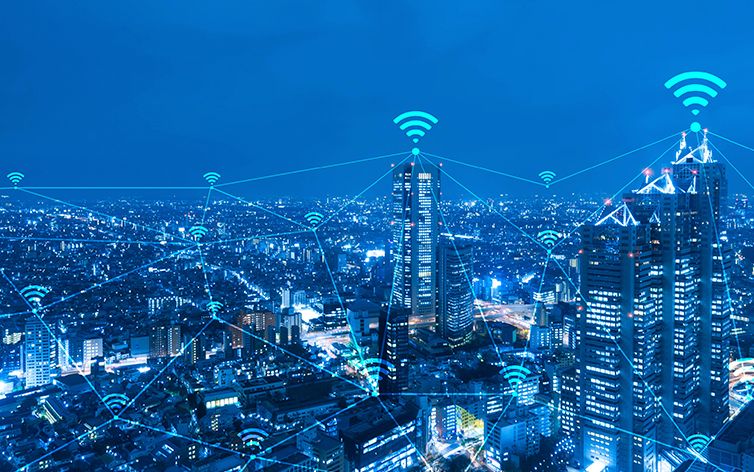Technology is now the underpinning of every part of the CRE business. Though it may be happening at a slower rate compared with some other industries, companies are adopting a variety of advanced technologies. Investors have certain expectations about technology usage: In a recent study done by professional services giant Deloitte, nearly two-fifths of investors plan to increase the use of predictive analytics and business intelligence to make their investment decisions. Ross Litkenhous, Global Head of Business Development at Altus Group, told Propmodo, “The last few years have ushered in the single largest evolution in commercial real estate technological advancement since the introduction of the Excel spreadsheet.”
Another way technology is affecting the mindshare of those who control large amounts of real estate is that their investment decisions are being influenced by the disruption caused by new business models. “Sharing economy” companies like Airbnb led the way with 82% of the U.S. executives saying that their investment and portfolio decisions were influenced by the company’s effect on the industry. Sixty-nine percent of those same managers said that the growth of coworking was influential with the effects of e-commerce sites like Amazon not far behind at 58%.
Disruption in the retail market is having a similar influence in manufacturing as warehousing and distribution markets experience increasing demand due to the yearly growth in online purchases. It should come as no surprise that many large retailers are making investments in extremely complex technical fulfillment sites that are strategically located.
Which technologies are the ones to master?
National Real Estate Investor points us toward Benjamin Breslau, managing director, Americas research, at real estate services firm JLL, a founding partner of the MIT lab, who advises investors to consider technology that (1) automates and helps run businesses more efficiently; (2) impacts the size of tenant spaces and future-proofs buildings throughout their lifecycle; and (3) collects data to power analytics that help run buildings efficiently.

Artificial intelligence (AI) will collect data that improves information transparency and helps investors make better decisions by providing access to specific data, such as building energy consumption, market rates, and how tenants utilize workspace and common areas. Greater transparency works to raise competition for assets, as more investors will have access to the same information. Breslau adds, “The key may no longer be who has the data, but more who knows how to interpret it and apply insights.”
For example, the website 42Floors provides office space rentals and commercial real estate listings for owners and prospective tenants. Some companies like CompStak and DealX implement a crowd-sourced platform by providing lease comparables for public usage, coupled with details like the tenant's name, rent amount, length of lease and landlord concessions. Real Massive and VTS have even more comprehensive platforms, offering property listings, relevant market data, workflows, and information to owners, CRE professionals, and tenants.
Skyline AI, a proprietary artificial intelligence and machine learning platform, automates asset valuation and underwriting. JLL Spark made the decision to invest in the start-up because it leverages industry data from more than 130 different sources and analyzes more than 10,000 attributes of each asset for the last 50 years to predict future performance and accurately estimate asset value.
Though now only in the testing phase, autonomous vehicles are expected to have an enormous impact on the urban landscape and future building uses. Developers are already adding drop-off platforms to building infrastructure to accommodate services like Uber and Lyft. According to Breslau, “We’re advising developers to future-proof projects by preparing for a building’s future lifecycle in the planning and design stage.”
The internet of Things (IoT)
There are now more “things” connected to the internet than people. Deloitte reports that over a quarter of the respondents in the aforementioned survey said they thought CRE companies should prioritize the use of Internet of Things (IoT) technology when redesigning buildings. Respondents from China (48%) and Singapore (43%) place a greater emphasis on the use of IoT technology compared to respondents from the United States (15%).
IoT devices can be put to use to monitor and control the mechanical, electrical, and electronic systems used in buildings of all types, in home automation and building automation systems. IoT is powering smart city technology, using connectivity and sensors that control city and development infrastructure, and harnessing the computing power that collects and analyzes data, which could be useful to real estate planning and investment.
Blockchain, a digital ledger of economic transaction data validated by a network of computers, can be programmed to record financial transactions and basically everything of value. The technology is relevant for processing real estate transactions and should be quickly adopted by the commercial real estate industry.
THE BOTTOM LINE:
Change the mindset to embrace technology.
Next: Start operationalizing your digital strategy across your entire business–from the ground up.
Images courtesy of Adobe Stock